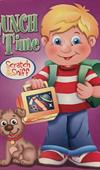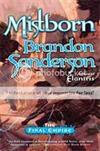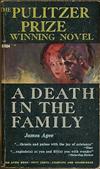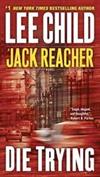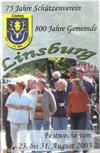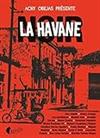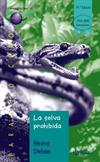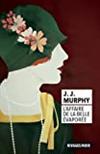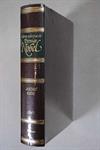
WHEN I LIVED IN MODERN TIMES / Quando vivevo nel domani
Registered by kinkazzo on 3/27/2003
1 journaler for this copy...
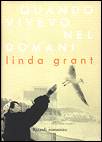 My review on Amazon in June 2000:
My review on Amazon in June 2000:Linda Grant... won the British Orange Prize 2000 for her new book When I Lived in Modern Times. As with her first well-received novel The Cast Iron Shore (out of print), this is a skilful combination of the personal and the political. In the Orange winner book, we follow the fortunes of Evelyn Sert who leaves postwar UK after her mother's death for a new life in Palestine. Evelyn never knew her father and grew up in what she describes as a 'shadow family', her mother the mistress of a married Jewish businessman. Arriving in British-ruled Palestine, Evelyn is like a blank canvas, in search of an identity for herself. An admirer of all things modern and with no interest in the past, she finds herself in a country with its face turned firmly towards the future. Evelyn settles in the modern city of Tel Aviv and soon becomes involved with the struggle for Jewish independence. Assuming the identity of hairdresser enables her to pass information about the policemen husbands of her British clients to her lover in the Jewish underground movement. Tel Aviv is home to the Jewish refugees of the world and Evelyn soon discovers that it is one thing to survive, but another to survive intact. Grant produces strong visual imagery and dynamic characters with memorable voices that resonate throughout this enticing and satisfying novel. A deserved prize, then.
Questa la recensione ufficiale della versione italiana Quando vivevo nel domani (vedi sopra copertina italiana, 2° riquadro sinistra) di Linda Grant, una scrittrice che apprezzo molto e che, con questo suo romanzo, mi ha appassionato:

Nell'aprile 1946 Evelyn, ventenne inglese sola dopo la morte della mamma, si imbarca per la Palestina. A spingerle, vaghe curiosità, progetti indistinti, un'incerta consapevolezza della propria identità ebraica. La tappa iniziale del viaggio in un kibbutz fondato da ebrei russi: un micro-universo utopico dove la vita materiale ha regole durissime, ma la tensione ideale è palpabile, sconvolgente per Evelyn quanto la lingua sconosciuta o la pienezza sensuale di un paesaggio dai colori violenti, dove il sole ferisce la pelle bianca di chi è nato a Londra. Ma ben presto, già temperata dalla prima esperienza, la protagonista scivola in un'atra vicenda: si trasferisce a Tel Aviv, la città bianca che, nel rigore stesso dell'architettura Bauhaus, sembra relaizzare il sogno di un mondo nuovo. Qui trova un lavoro, un amore, accetta fino in fondo le proprie radici ebraiche e, influenzata dal suo amante, aderisce alla causa sionista. Fino a quando, in una ultima, brusca inversione di rotta, Evelyn viene catturata dagli inglesi ed espulsa dal paese.
E' il 1947, la vigilia della nascita dello stato di Israele: Evelyn, privata della patria che non ha mai posseduto, affronta ancora una volta l'ignoto. E' incinta, e sa di poter contare su se stessa, su una forza dolorosamente conquistata.
A Tel Aviv, ormai ingrigita dall'usura del tempo, Evelyn tornerà solo da vecchia, per ripercorrere il filo dolceamaro della stagione più intensa della sua vita.
Un romanzo che parla di idealismo, di sogni infranti, di una difficile crescita. Linda Grant ha cose importanti da dire su un periodo storico importante. The Guardian
Un'eroina dal fascino particolarissimo, l'immagine indimenticabile di un tempo e di un luogo mai osservati con tanta lucidità. Publishers Weekly
Una riflessione intensa, a tratti dolorosa, su come la Storia agisce sul destino della gente comune. Kirkus Reviews
 And this was Linda Grant's comment on my review above:
And this was Linda Grant's comment on my review above:Dear Gianluca
 I wanted to write and thank you for your marvellous appreciation of my book
I wanted to write and thank you for your marvellous appreciation of my bookWhen I Lived in Modern Times. You are right: a writer's own assessment is
seldom objective. Each of us craves the reader with the questing
intelligence and sensibility to determine whether we have achieved what we
wanted to. Instead of reader who berates us for not writing the book THEY
wanted to write.
With best wishes,
Linda Grant
------------------------------
-Her email dated January 29, 2001
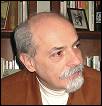 Written with uncluttered economy, rich in quietly astute observation and underpinned by a rigorously searching investigation of its themes, this is a novel that both stimulates the mind and satisfies the heart.
Written with uncluttered economy, rich in quietly astute observation and underpinned by a rigorously searching investigation of its themes, this is a novel that both stimulates the mind and satisfies the heart.--Sue Wilson,
Scotland on Sunday
Here's an interesting review by bookreporter.com:
WHEN I LIVED IN MODERN TIMES
Linda Grant
Plume
Fiction - ISBN: 0452282926
Some books grab your attention with the first sentence, some take a few pages, and some even need a chapter before you become engrossed. WHEN I LIVED IN MODERN TIMES by Linda Grant caught me with the second paragraph:
"This is my story. Scratch a Jew and you've got a story. If you don't like the elaborate picaresques full of unlikely events and tortuous explanations, steer clear of the Jews. If you want things to be straightforward, find someone else to listen to. You might even get to say something yourself. How do we begin a sentence? 'Listen…'"
Grant's protagonist, Evelyn Sert, grows up in London, where her grandparents settle after leaving Latvia prior to the turn of the century. Evelyn never knows her father; an American who woos her mother while visiting London in 1923. When he returns to America, he promises to marry her mother when he comes back to London. Evelyn's mother never sees him again. A hairdresser, she becomes the mistress of a wealthy Jewish merchant who provides for her by setting her up in a shop on Regent Street. Evelyn knows him as "Uncle Joe."
Joe treats Evelyn as a daughter, bringing her books and gifts on occasion, and imparting his political beliefs on her psyche. One of those beliefs is that Palestine will one day be a permanent home for Jews. A collection box for the Jewish National Fund sits on the mantel, and as Evelyn grows older, Joe brings her books and newspaper articles about life in Palestine. Evelyn's mother teaches her the art of hairdressing, but when Evelyn leaves school at 17, she wants to be an art student. Even here practical Joe influences her, getting her a job as a commercial artist in an advertising firm, rather than sending her to art school.
In the summer of 1945, after the war ends, Evelyn's mother suffers a series of strokes that so debilitate her she has to be admitted to a nursing home. After her death, Joe persuades Evelyn to follow his dream and go to Palestine. Because the British have limited Jewish immigration into Palestine, and because Evelyn has no skills that are of use to the Jewish Agency that can get her an entry permit, she chooses to lie and enter Palestine as a Christian tourist. Once there, she can simply stay on, losing herself in the crowds of Jews who have already settled there.

After trying life on a kibbutz and finding it not to her liking, Evelyn settles in Tel Aviv, a city only as old as she herself is. Unable to find any other work, she finds work in a hairdresser's shop and styles the hair of the wives of British officers posted in Palestine. At work she continues to hide her Jewish identity, using the name Pricilla and saying that her husband is a British soldier posted in Tunisia. When not with the British officers' wives, she resumes her own identity and falls in love with a Sabra, a Jew born in Palestine. She discovers that he is not what he seems; in fact, he is a member of the Irgun, the secretive Jewish terrorist group that is fighting for Palestinian independence and Jewish control.
Linda Grant won Britain's Orange Prize for Fiction for WHEN I LIVED IN MODERN TIMES, and I understand why. It is both a coming of age story, and the story of a country struggling to be born. As someone who grew up on stories of Israel's war for independence, and as a teacher of Israel's history, this book rings true. It doesn't sugarcoat the struggles of immigrants who settled there after World War II, nor does it hide the fact that Jewish terrorists did their best to chase the British out of Palestine so that they could create the country Israel for themselves. I also found the characters, especially Evelyn, to be real people complete with flaws. And, even though I found the ending a bit too simplistic and obvious, it ultimately made sense.
--- Reviewed by Debbie Ann Weiner
© Copyright 2003, Bookreporter.com.

